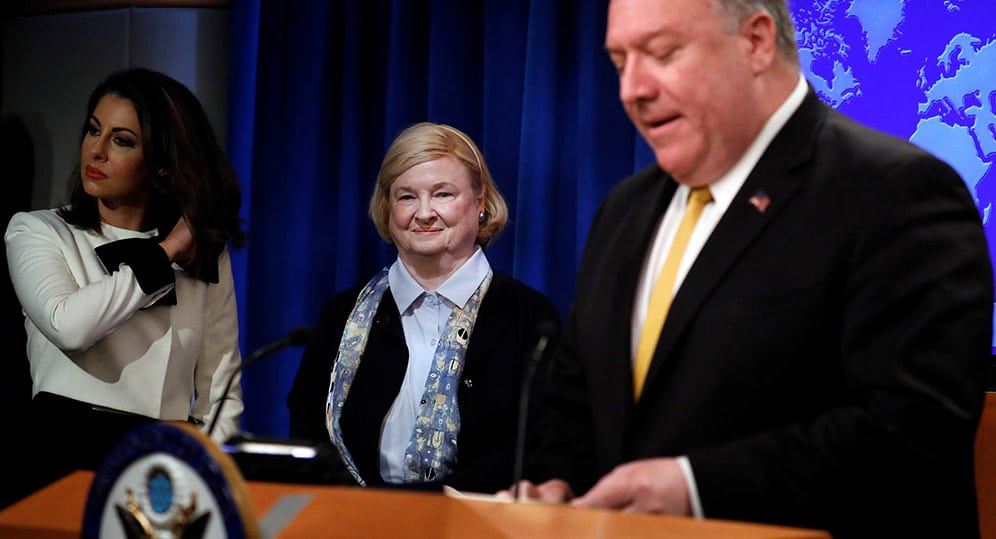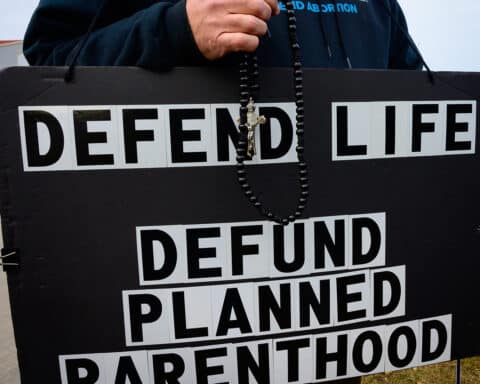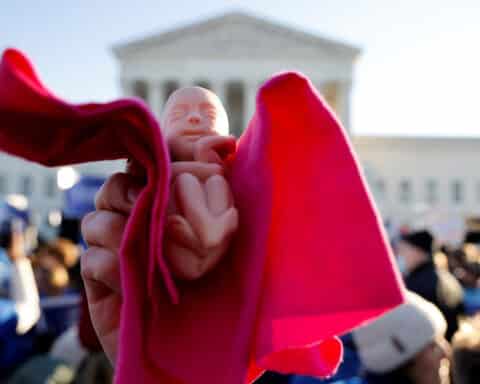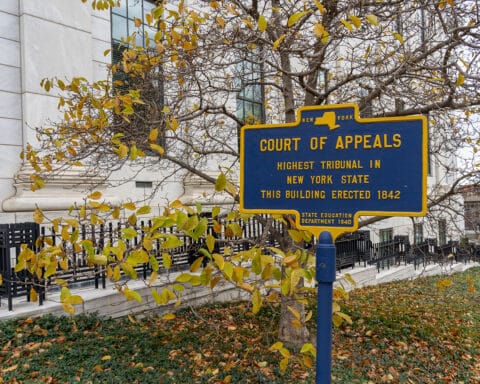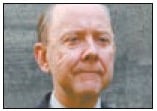
The expression “unalienable rights” was at the center of the protesters’ complaints. In a letter to Secretary of State Mike Pompeo, they said they “view with great misgiving a body established by the U.S. government aimed at circumscribing rights through an artificial sorting of those that are ‘unalienable’ and those to be now deemed ‘ad hoc.'”
“These terms simply have no place in human rights discourse,” declared the coalition, whose members include the National Council of Churches, Catholics for Choice, Freedom From Religion Foundation, American Civil Liberties Union, Planned Parenthood Federation of America and Rights Campaign, a LGBT advocacy group.
I don’t know where they got that bit about “ad hoc” rights, but as far as unalienable rights are concerned, I suggest the protesters consider the following:
“We hold these truths to be self-evident, that all men are created equal, that they are endowed by their creator with certain unalienable rights, that among these are life, liberty and the pursuit of happiness.”
It hardly needs to be said that this is from the Declaration of Independence. If the protesters have their way, we presumably will need to drop the reference to unalienable rights and to a creator who bestowed them. Life, liberty and the pursuit of happiness may or may not stay. And so much for the American founding. As I said: All this would be rather funny if it weren’t so sad.
The new Commission on Unalienable Rights, a purely advisory body, is chaired by Harvard law professor Mary Ann Glendon, a Catholic scholar who is a former U.S. ambassador to the Holy See. In an article in the February issue of First Things, she and Seth D. Kaplan of the Johns Hopkins school of international studies discussed the decline of interest in human rights in the years since the U.N. Declaration on Human Rights of 1948. They suggested, as a realistic goal for reviving it, “the systematic elimination of a narrow set of evils” for which, they said, a broad consensus already exists across societies.
This noninclusive list included genocide, slavery, torture, cruel, inhuman or degrading treatment or punishment; retroactive penal measures, deportation or forcible transfer of population; discrimination based on race, color, sex, language, religion, nationality or social origin; and protection for freedom of conscience and religion.
Readers will note that this says nothing about pushing either for or against abortion, nor does it speak of pressing the LGBT agenda. But both things — abortion rights and LGBT interests — are of prime importance to a goodly number of the groups and individuals raising alarms about the State Department commission. That makes it hard to escape the conclusion that when push comes to shove, these people care more about grinding their particular axes than addressing genuine human rights abuses in areas like those identified by Glendon and Kaplan.
In announcing the new commission, Secretary of State Mike Pompeo said that “as human rights claims have proliferated, some claims have come into tension with one another, provoking questions and clashes about which rights are entitled to gain respect.” The commission’s charter says it will provide “fresh thinking about human rights” and propose “reforms of human rights discourse where it has departed from our nation’s founding principles of natural law and natural rights.” Here’s to wishing it much success.
Russell Shaw is a contributing editor for Our Sunday Visitor.

